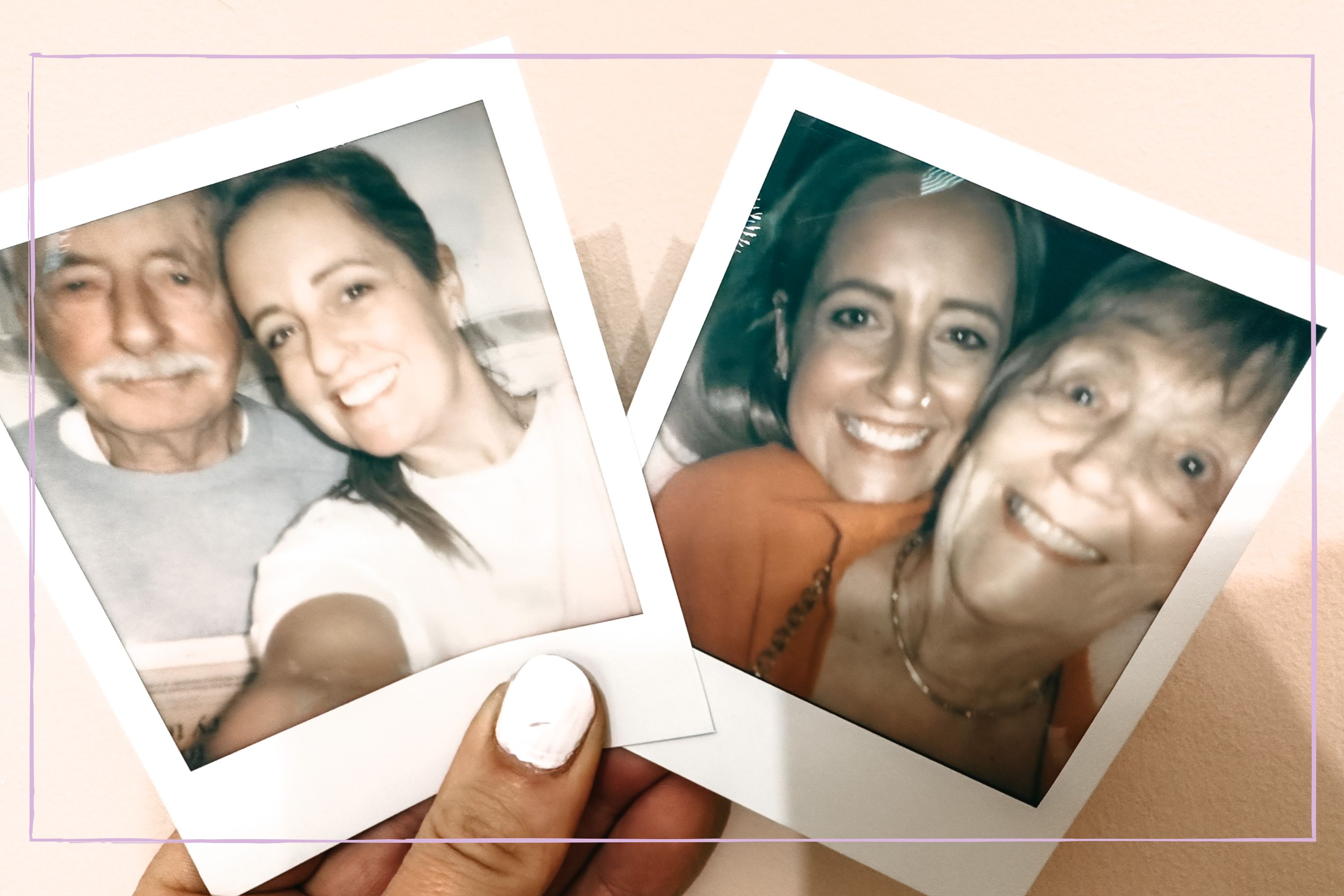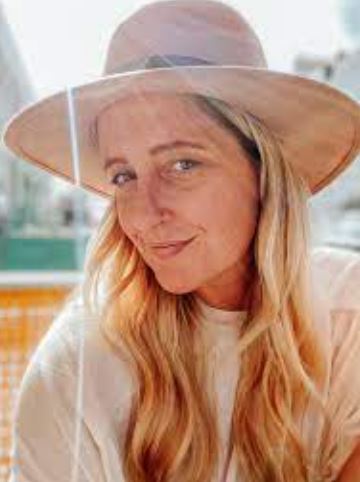
Parenting advice, hot topics, best buys and family finance tips delivered straight to your inbox.
You are now subscribed
Your newsletter sign-up was successful
The sandwich generation are rising in numbers, as parents live longer and children's lives are busier. But what about the carers caught in the middle?
I am a millennial who is part of the sandwich generation, a large section of people responsible for for both dependent kids and now, dependent parents. The people who have all the anxieties and no more than 35 minutes of their days to themselves, to their thoughts, ambitions, worries and passions. Let me talk you through how my sandwich generation life looks at the moment…
It’s about 8 pm on a Friday evening as I push the door to my parents’ house open. I’ve just driven for almost four hours to spend the weekend with them. I’ve had a busy week at work and left my husband and kids at home to spend the weekend with mum and dad. I love seeing them because I am increasingly and acutely aware that my time with them is limited but I also know that this weekend will not be restful or restorative for me. My role, these days, is to give them a restful and restorative weekend. I’ll get on top of their laundry, I’ll pop a few meals in the freezer, I’ll drive to the nearest town to do their supermarket shop for them and I’ll help dad with the inevitable admin tasks and tech niggles he’s got.
"I’m no longer 'sausage'; I’m the 'sandwiched', the 'squeezed', the 'stretched'."
"Hi, it’s me," I shout over the television that’s blaring at a volume that those dead and buried in the graveyard next door can almost certainly hear. "Who’s that?" I hear dad say. I suppress the urge to reply impatiently with something like, who do you think it is, you pillock? and instead, I simply say, "Me, Cat." Dad heaves himself out of the chair. I can almost hear him creaking. He pulls me into three kisses and a hug. "Ah, hello sausage."
My dad’s pet name for me has been 'sausage' for my entire life. It didn’t occur to me to question it when I was little and now that it’s been my moniker for the last 41 years, it feels daft to challenge it now but as I stand in my parents’ kitchen the discordance between diminutive term and the gargantuan responsibility of provision of care that I’m here to execute rings loudly in my ears. As this weekend proves, I’m no longer 'sausage'; I’m the 'sandwiched', the 'squeezed', the 'stretched'.
The sandwich generation - how it happened
I am one of the ever-increasing numbers of millennials finding themselves sandwiched between the responsibility of taking care, financially, physically and/or emotionally, of multiple generations. We are caught in the middle between caring for elderly parents who are living longer and therefore often require more support and young children who are still dependent on us or older children who are remaining at home well beyond their late teens and often into their late twenties and early thirties.
The diagnosis
About four years ago my mum was diagnosed with Parkinson’s disease. It’s an insidious and unpredictable illness that manifests in as many ways as there are people diagnosed with it. There’s no timeline, no recognised progression of the disease, no way of stopping it. There are several medications, treatments, and therapies that can help patients manage their symptoms, but these are not universally effective. What works for one patient, may have no impact on another. Treatment and medication tend to be delivered reactively to new symptoms that pop up rather than preventively because, quite simply, no one knows what Parkinson’s will look like in each individual.
Parenting advice, hot topics, best buys and family finance tips delivered straight to your inbox.
I remember being devastated when I heard that Mum had been formally diagnosed. It wasn’t as if we weren’t expecting it; she’d been exhibiting tremors for a while and struggling with other seemingly unrelated issues such as gut abnormalities and joint pain. It wasn’t even because the reality of losing my mum had suddenly hit me. It was the ugliness of it all, the unfairness of the future that was now laid out before my parents. I was 36 at the time and I knew that I was going to have to settle into that sandwich.
I am grateful
I don’t think anyone who must look after their parents in their later years resents it or is angry about it. I am grateful every day that I have the resources and support from my husband to do it. I also feel incredibly privileged that I get to spend more time with them and do for them, what they have done for me. That doesn’t mean I don’t get frustrated. Often.
Government agencies and local councils are my kryptonite when it comes to patience. I’m sick to death of navigating bureaucratic obstacle courses, appointment cancellations, and left hands not talking to right hands across various healthcare providers. I can be overcome by a physical, irrational, red-hot rage when I find myself stuck in traffic on the M5 as I drive to Devon. I can be short when my dad calls me for the fifth time that week to ask me why his Alexa isn’t working, and if I can fix it. "What, exactly, do you want me to do from London, Dad?" I’ll snap. I’ll apologise later and tell him I’ll look at it when I get there at the weekend. I’ll cry when the kids complain that I’m never at home. I’ll project all this frustration onto my incredibly supportive husband when he suggests that I should slow down.
"I live with deep-seated anxiety that the world could tilt at any point."
It's not all doom and gloom though. Their needs have given me the opportunity to spend more time with them than I would have if they were fit and healthy. I’ve been able to complete many jigsaws with my mum that would have remained in boxes otherwise. I’ve been able to lie on her bed next to her and watch Eastenders while eating chocolate digestives and chatting away. Their increased needs have meant I’ve eaten more meals with them, laughed more with them, watched more TV with them, and walked more with them and for that, I am eternally grateful.
But I fear the point at which the stress of it all overpowers my ability to care and cope. While things feel manageable now, I live with deep-seated anxiety that the world could tilt at any point. I’ll toss and turn in the spare room at my parent’s house thinking about how we can make it more accessible. I’ll toss and turn at home wondering if they’re ok and if the next time they call will be the call to tell me that my mum has had a fall and this time, she’s not ok.
Everything is a worry
I worry about how bad Parkinson’s will get and how quickly. I worry about dad. He is nearly 81 and he is mum’s main carer when I’m not there. Can he manage? Is it too much? I worry about their mental health and the toll it’s taking. I worry about whether there’s enough money to cover all medical costs if they are needed. I worry about whether we will have to move house to be closer to them or whether we need to move them closer to us. I worry about what relocating will do to the kids. I worry about whether I am doing enough, and this is all on top of the other things parents like me have to manage like, oh I don’t know, our kids, our marriages, our careers, and our laundry piles.
And if our generation is struggling to cope with the increased care demand on us, what is it going to be like for our children? Millennials are almost certainly destined to live much longer than the previous generation, many of us past 100. This isn’t a problem that is going to go away. There are no silver bullets but the best solutions, I believe, are the ones that offer the most choice. There’s no doubt that subsidised childcare and eldercare, flexible working, comprehensive paid parental leave for all parents, larger carer allowances, appropriate healthcare funding, and wages for healthcare workers that encourage people back into professions such as district nurses will all help.
"Even with all this support we are still having to split ourselves into more pieces and the stakes are high."
But realistically, the mental toll on those sandwich carers is harder to fix because instead of being caught between two pieces of soft, fluffy generational bread, we are caught between the proverbial rock and the hard place. Even with all this support we are still having to split ourselves into more pieces and the stakes are high. The pressure to be everything that everyone you love needs is one that is going to have a negative impact eventually. As we all live longer, and the sandwich generation grows and must care for longer, who is going to look after the carers?
Related Cat Sims Features:
- As divorce enquiries reach record high I talk to the women who regret theirs
- Children’s Mental Health: How to talk about children's mental health and how to manage it
- If Mother’s Day really is about us we need to stop making it a lovely day for everyone else
- Kinkeeping: Find out what it means and why this term is dangerous
- "But love will make you do crazy things" - No, violence is never okay, Will Smith!
Video of the Week

Cat Sims is a writer, content creator, podcaster (You're never the only one) and author of 'The First Time You Smiled' who is still trying to figure out the whole 'adulting' thing. She's made a living out of documenting her failures and successes as a 40-year-old woman, mother, and wife across various social media platforms.
